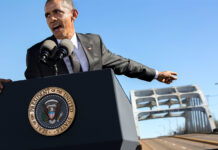
Upside Down Logic
Today in the WSJ. Daniel Henninger writes to his readers about the end of an era. As he points out, everything changes, including Mr. H. In a piece titled “I Saw It All. Then I Saw Nothing,” Mr. Henninger reconstructs the events of 9/11 (Henninger’s piece.)
Before then, he admits, “the most compelling event in my journalistic career had been the end of the Cold War, specifically the fall of the Berlin Wall on Nov. 9, 1989. “
Now, this one event, 9/11, had begun a long war with the reality of global Islamic terror.
The WSJ was operating out of makeshift offices in central New Jersey, and for that, the paper won a Pulitzer Prize. Daniel Henninger’s “Wonderland” started that week.
Ever helpful, Mr. Henninger gives a few succinct rules of the road:
- Avoid the word “must.” “Don’t tell people what to do. Smart readers hate it when you try to push them around.” Henninger adds, “… the journal’s leadership is a writer’s treasure of informed intelligence.”
- Remain a skeptic rather than a cynic, he advises. People used to ask Mr. Henninger why he called his column “Wonderland.” No more.
Our politics passed through Alice’s looking glass a long time ago. “The Queen of Hearts, an expert in upside-down logic—“Sentence first, verdict afterward”—could be a gerrymandered member of Congress.”
- Keep it all to about 825 words.
After innumerable editorials and columns, I’ve concluded that nearly anything worthwhile can be said in about 825 words. Pushing beyond that limit risks committing the deadliest sin—boring one’s readers. So I’ll stop there.
Farwell Mr. Henninger. With or without Alice’s looking glass, all 800 or so “Wonderland” words will be missed.
If you’re willing to fight for Main Street America, click here to sign up for the Richardcyoung.com free weekly email.




